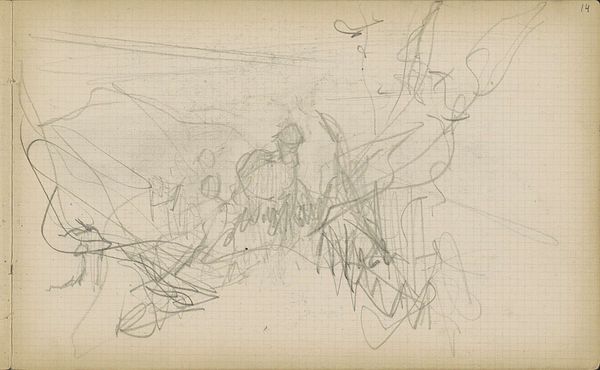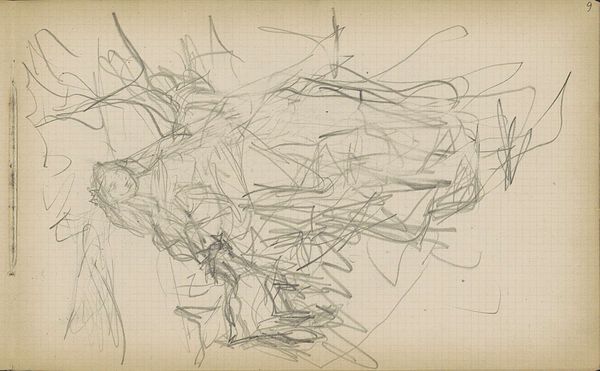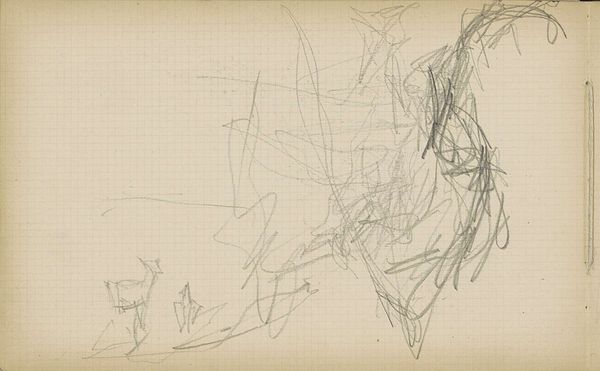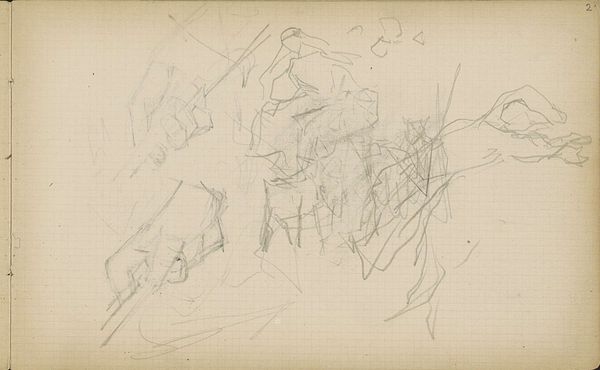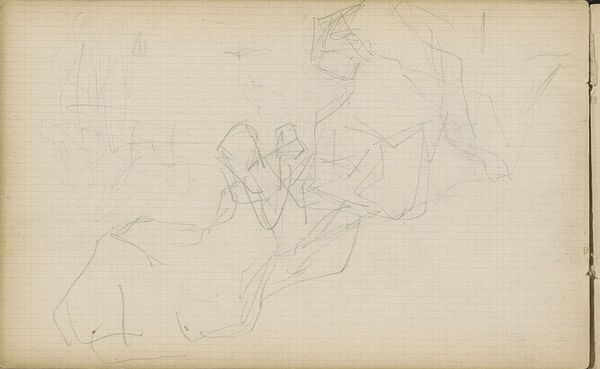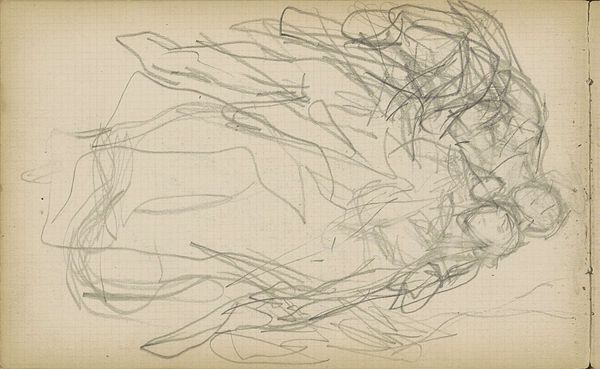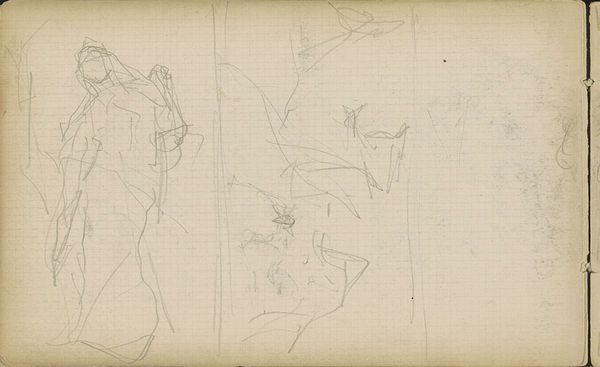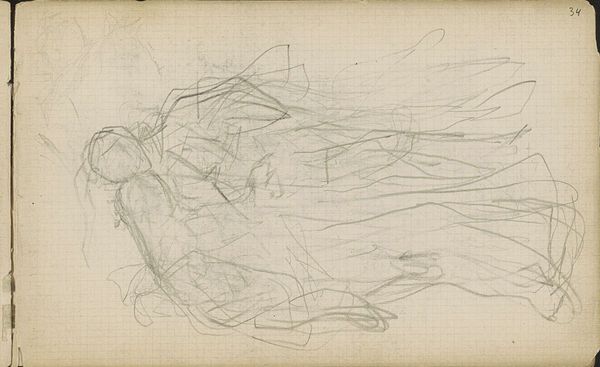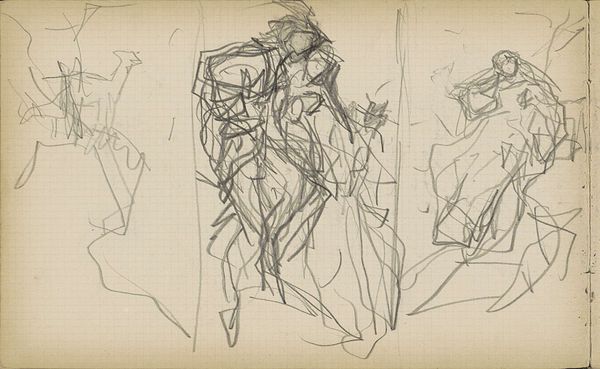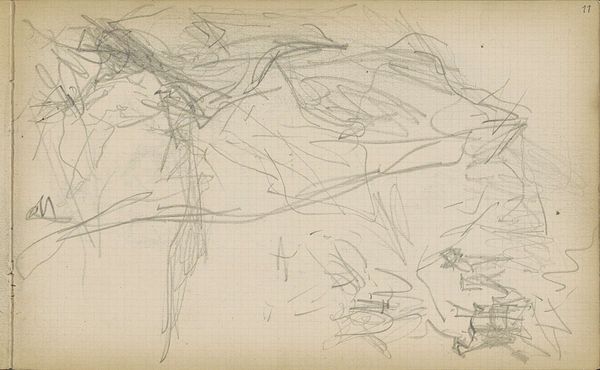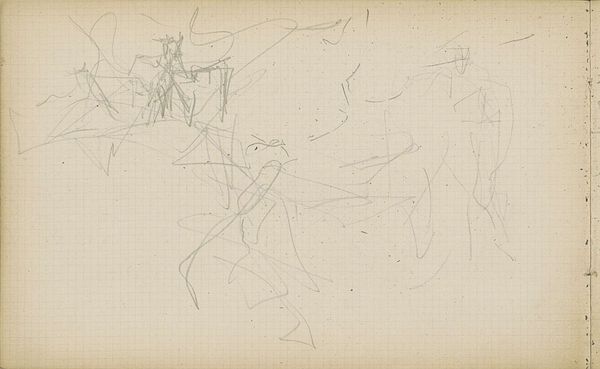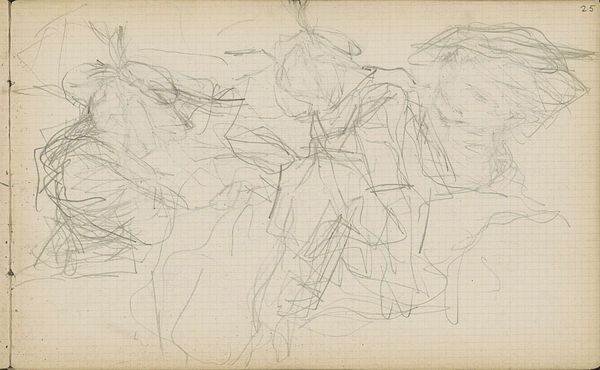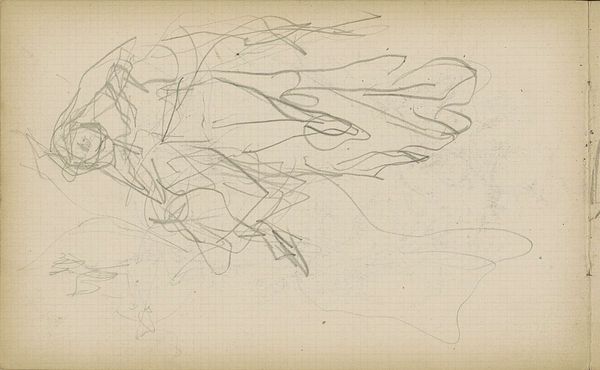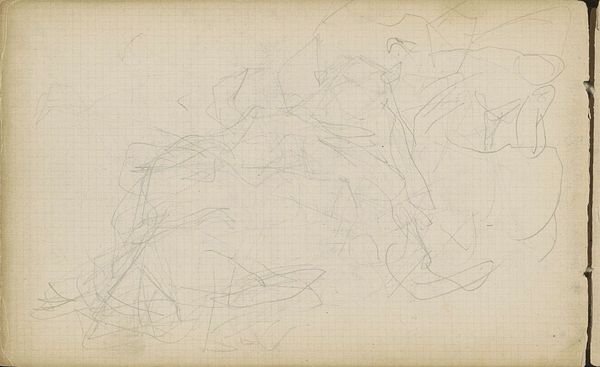
drawing, paper, pencil, graphite
#
drawing
#
pencil sketch
#
paper
#
pencil
#
abstraction
#
graphite
Copyright: Rijks Museum: Open Domain
Curator: Let's consider this pencil drawing titled "Studie," created by Matthijs Maris sometime between 1849 and 1917. It's currently held in the Rijksmuseum's collection. Editor: My first impression is…elusive. The delicate lines create a sense of mystery. I find myself searching for forms, but they seem just out of reach, hovering at the edge of recognition. It feels quite personal. Curator: Absolutely. And that’s, in part, the point. Maris employed graphite on paper to render these forms. Thinking about the material qualities is key here. A graphite sketch allows for experimentation and also a high level of re-working which lends to a type of visual labor. We see process happening right before our eyes. Editor: I agree. Knowing that this work happened between the mid-19th century and early 20th century provides critical context. During this time we have artists struggling with questions of representation and evolving approaches to abstraction. It also prompts a discussion of mental health in that time, particularly as it relates to this type of seemingly fractured work. It's quite a somber drawing when seen through that lens. Curator: Yes, the mood and composition reflect how Maris challenged conventional forms of artistic production. How he worked and what he produced is just as interesting. Editor: Viewing this through the lens of personal and political trauma provides an insightful contrast. There's a fragmented beauty, an expression of brokenness and resistance, I would say. Curator: Thinking about these types of material exercises, particularly Maris' pencil sketches, encourages us to question traditional notions of 'high art' versus more everyday modes of creative output. We begin to see process and working class labor entering the equation. Editor: Right. Placing it within broader historical narratives helps us understand how his work contributes to our discussions about mental health and society. Thank you. Curator: Thank you, it was a worthwhile conversation!
Comments
No comments
Be the first to comment and join the conversation on the ultimate creative platform.
